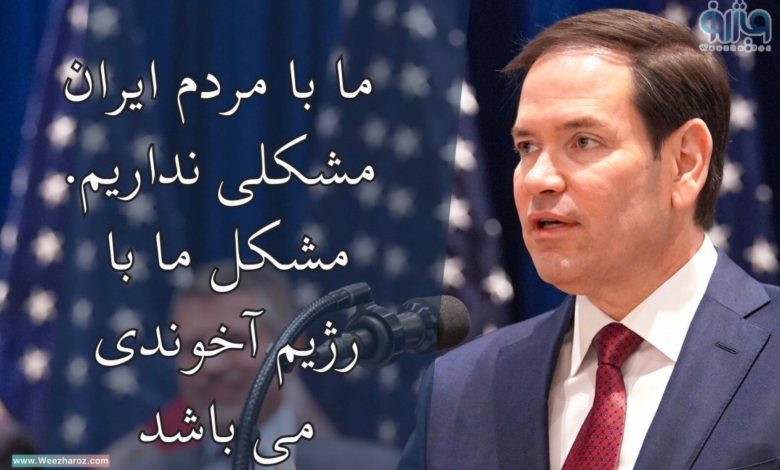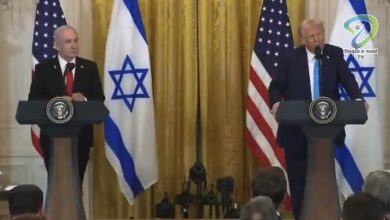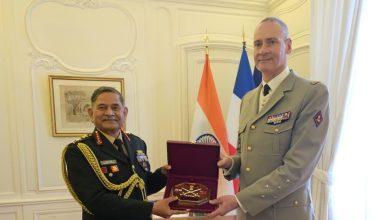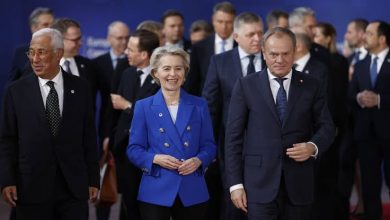Marco Rubio’s Statement on U.S. Policy Toward Iran
Washington, D.C.– Marco Rubio, the U.S. Secretary of State and a prominent figure in American foreign policy, made a clear and direct statement regarding Iran in his latest remarks. He emphasized the importance of distinguishing between the Iranian people and the ruling regime of the Islamic Republic.

Weezharoz-In his speech, Rubio stated: “We have no problem with the people of Iran.The Iranian people are peaceful, with an ancient civilization and culture that we deeply admire.”
He praised the rich history and heritage of the Iranian nation, noting that the country’s art and culture have inspired many societies around the world.
Continuing his remarks, Rubio described the Iranian regime as the main source of instability in the region.
“Our issue is with the clerical regime, not with the people of Iran. This regime is the root of all regional conflicts: Hezbollah in Lebanon, Hamas in Palestine, the Houthis in Yemen, and militias operating from Iraq and Syria targeting regional and international interests,” he said.
Rubio warned about the proxy networks supported by Iran and stated that the U.S. must adopt firm and effective policies to prevent the spread of this influence across the Middle East.
He also criticized what he called the “indifference of some Western governments toward Iran’s regional threats.”
Rubio stressed that the U.S. must counter Tehran’s destabilizing activities through targeted sanctions, support for moderate forces in the region, and cooperation with regional allies.
He further urged the U.S. government to pay closer attention to Iran’s role in ongoing conflicts in Gaza, Yemen, and Syria.
Rubio’s comments reflect a faction of American policymakers who strive to distinguish between the Iranian population and the country’s ruling system.
While praising Iran’s culture and history, he simultaneously holds the Islamic Republic responsible for many of the region’s tensions and crises.
These remarks may be seen within the framework of the U.S. “maximum pressure” policy or a broader reevaluation of America’s strategic posture in the Middle East.
Weezharoz




